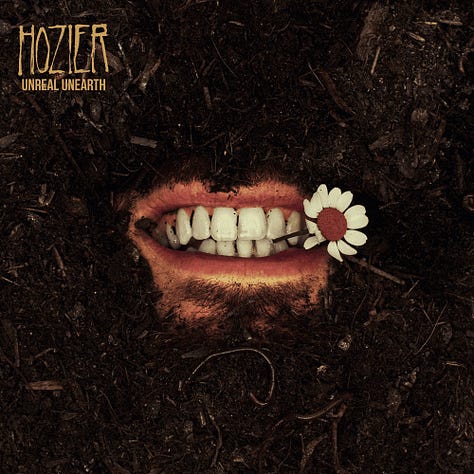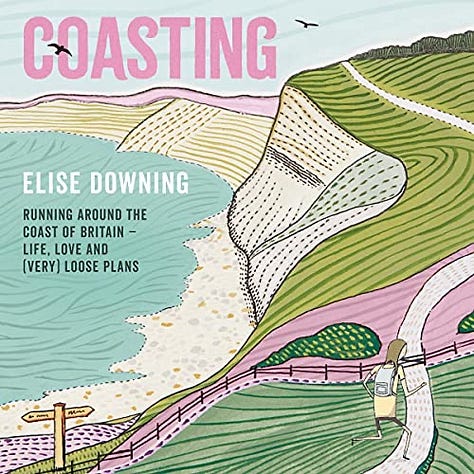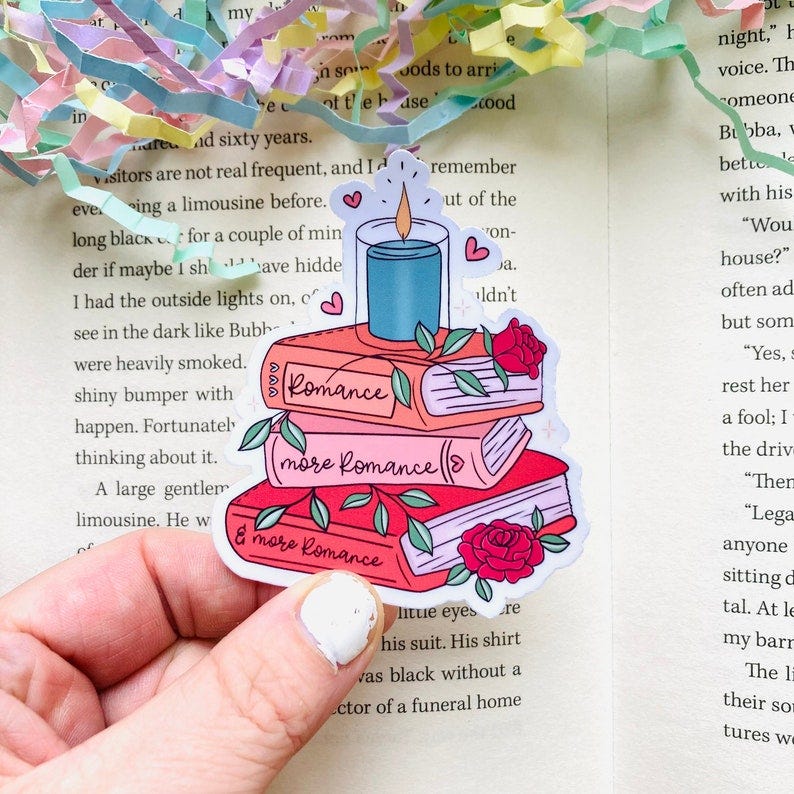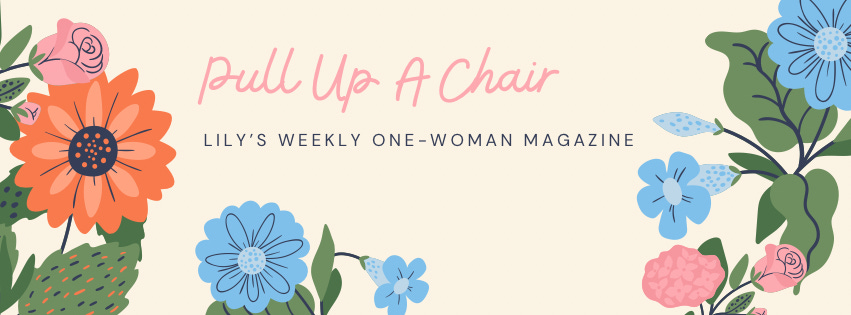On Romance Novels
30 On Purpose: May
Welcome to this week’s roundup of three things I’ve been enjoying, and some chat about what’s on my mind. This week, I’m continuing my ‘30 on purpose’ series and talking about my happy place: romantic fiction (this is a long newsletter and some email services will cut it off - you can always read online or through the app).
🎶 Too Sweet - Hozier. Yes, I am one of the thousands of people rocking out to this song despite being an early bird who’s never once drunk my coffee black in my life (I do take my whisky neat, though?). It’s just such a vibe.
🧴 CeraVe AM Facial Moisturising Lotion SPF30. I’m going to remind you straight off that a moisturiser with SPF in it isn’t enough protection for being outside for a long time on a properly sunny day - for that I top up with a proper face sun cream from Soltan - but it’s a great way to get some protection from sun damage on an everyday basis. I got this recommendation from
(well, she recommended the SPF 50 version, which I clearly ignored) and I’ve used up almost a full tube of this, and got another one waiting ready in my bathroom cabinet. It feels properly moisturising, and never irritating (I have very dry skin, especially in winter), which isn’t something I can say about all daily moisturisers.📕 Coasting by Elise Downing. As seems to happen regularly in the spring, I’ve remembered how much I like running, and being outside, and I finally bought and downloaded a copy of Elise’s book about running around the coast of Great Britain, which had been on my wish list for aaaaages. And then proceeded to devour it in about three days. It’s just excellent.



One of the best bits of my 20s was, undoubtedly, discovering romance books. I remember being in my halls of residence room, the summer I was 20, on an internship in Edinburgh, devouring the Anna and the French Kiss* series by Stephanie Perkins, and then reading Outlander* while I was studying abroad in Germany (PS - all the starred Amazon links in this piece are affiliate links). I got back to the UK and kept reading these lovely love stories. Mhairi McFarlane’s You had Me At Hello* had me alternately laughing and crying in my tiny student room my final year of undergrad, and then after I moved to Edinburgh my romance-book-loaded Kindle kept me company through a pretty awful first six or eight months (in a job that didn’t suit me, lodging with conspiracy theorists).

Some people will say romance is a billion-dollar industry (spoiler alert: the data don’t support this claim, but it doesn’t matter), meanwhile others continue to scoff at ‘mommy porn’ and ‘banging fae’. When I was long-listed for the Lucy Cavendish Prize in 2020 for my novel-in-progress Checked Out (which I eventually finished in 2022, something I am super proud of!), I put it on my LinkedIn. Look, the world had shut down, so I had no work events to post about, and everyone else was posting pictures of dogs and homeschooling, don’t judge me!
A week or so later, I was on a call with some asset managers who looked after part of my employers’ investment portfolio. One of them, to make polite conversation, said that he’d seen that I was a writer as well as having my day job. What was my novel about, he asked, clearly expecting something high-brow and intelligent-sounding.
“Romantic comedy,” I said. “Think a millennial Bridget Jones, in Edinburgh.”
You could have cut the silence with a knife.
I’m not the only writer to have had this experience. Emily Henry has a new book (Funny Story*) out, and, sure as night follows day, there have been articles around the web about romance as a genre. I enjoyed this NYTimes interview with her - gift link - in particular. In it, she says this:
When I was growing up (and beyond!), romance, as a genre, was treated as the butt of a joke. That message was instilled in me so deeply that I’d never even read a romance novel until I was about 25. When I started, I was blown away by how frequently the prose, character development and tension were exceptionally written. Beyond that, they’re often filled with a sense of hope, an appreciation for beauty, and the pervading belief that love of all kinds is a worthy pursuit, no matter how dark or scary the world may be.
While technically my books straddle the line between romance and general fiction, it’s always been important to me to claim that romance title, because if non-romance readers like my work, there’s a very strong chance that they’d love a lot of romance novels. I don’t want other people to miss out on the wisdom and joy this genre has to offer, the way I did for so long.
I know a bunch of you who read this newsletter are already romance readers - but I have my suspicions that a few of you are like nervous new swimmers, standing on the edge of the pool and letting apprehension stopping you from jumping in.
So I wanted to talk to you about romance novels. To me (and most of Romancelandia, as the online community of people who read and write in this genre is called), there are two basic rules for what defines a romance novel:
The main storyline of the novel is about romantic love.
There’s a happy ending (whether it’s a happy-ever-after - HEA - or happy-for-now - HFN doesn’t necessarily matter, as long as it’s emotionally satisfying).
With those two criteria satisfied, you can do, pretty much, whatever you want. Stories can be set in a world that looks like the one you or I might live in today, or 500 years in the past. The characters can be social equals or of vastly different status. The romance can be forbidden or fake (at the start, anyway…). There can be aliens, vampires, or werewolves, if you like. What might surprise you the most: they’re not all ‘spicy’.
To clarify: ‘spicy’ has become (I think largely due to BookTok) the term used to describe how much sex there is in a book. To further clarify, we might use terms like ‘open door’ or ‘closed door’ romance - if the characters get it on, do we see them do so, or is it more like in the film Chalet Girl where we see Ed Westwick crack a joke, and then the screen fades to black? There’s also - for me - one very important detail: A book can be incredibly sexy, without having anything explicit on the page at all. I was at an event with Lex Croucher* last year in which there was a shared appreciation throughout the room for rolled-up shirt sleeves and muscly forearms - and if you’ve seen Set It Up, you’ll know what I mean when I say the scene where the main characters share a pizza is one of the hottest scenes in movie history, in my opinion. In the world of historical romance, you can find everything from Mimi Matthews’s looks of yearning and gloved hands touching all the way to books which made me blush so much I couldn’t read them in public (looking at you, Tessa Dare).
Most importantly, though, the world of romance books is much more diverse than you might think from a cursory look at a table of clinch covers with half-dressed women and strong men variously in suits, uniforms, or Highland dress. Helped along by the popularity of self-publishing over the last decade or so (with the traditional publishers finally catching up), you can now find romances featuring people of colour, disabled people, every combination of gender identity and sexuality you could imagine, and books with characters and relationships that fit into more than one of those categories (shock horror, intersectionality exists!). These books are so, so important.
I believe that everyone deserves the possibility of a happy ending - and it wasn’t until I started reading books with great demi- and asexual representation, and books with neurodivergent characters, that I finally started to believe that I might find my own one day. Or, to express that more brutally clearly: I had grown up in a world of Disney movies and romantic comedies that had shown me that, no matter what else I might achieve, being traditionally attractive and finding a romantic partner were the most important things - but not showing me stories of people who felt like me finding that. Romance novels gave me that. Going back to my own book-sorting taxonomy: they’re white bread books, but that doesn’t make them any less worthy than your Middlemarches of this world!
I’ve put together my own ‘starter’s guide to romance novels’, below. Many of these are the first in a series - but if a later book sounds more appealing, you can generally dive straight into it. As you start reading, you’ll likely find your own favourite tropes and settings - and I’ll be happy to do a ‘book concierge’ post to help you find more of what you’re enjoying!
Keep reading with a 7-day free trial
Subscribe to Pull Up A Chair to keep reading this post and get 7 days of free access to the full post archives.




